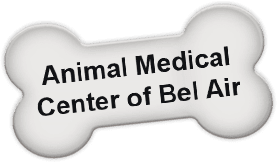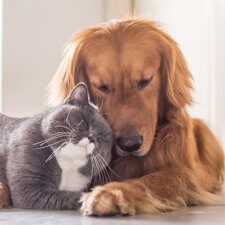Valentine’s Day is coming up soon! This sweet lover’s holiday can be a dangerous time for pets. Many traditional Valentine’s Day trappings are hazardous to our furry friends. Here, a Forest Hill, MD veterinarian discusses some Valentine’s Day hazards for pet parents to be aware of.
Chocolate
Boxes of chocolates are a classic Valentine’s Day gift. However, they definitely are not safe for pets. Chocolate contains something called theobromine, which is safe for us but toxic to our animal companions. Many chocolates also contain raisins and/or nuts, which are also dangerous to dogs and cats.
Candies
Those colorful sweets with the cute sayings are always delightful, but they aren’t safe for pets. Many candies and baked goods contain xylitol, which is poisonous to pets. Hard candies also present a choking hazard, as do the wrappers themselves. Don’t keep candy bowls in spots your pet can reach.
Plushies
We probably don’t have to tell you that many of our canine patients get very, very excited over stuffed animals. It’s not a bad idea to try and sneak yours past Fido, and put it in a hidden spot. The issue here is that some dogs will try to eat the stuffing. Others will remove the squeakers and eat those. Needless to say, these aren’t things you want your pet eating. Ribbons and small parts, like button eyes, can also present choking hazards. Err on the side of caution, and keep that cute stuffed bear away from your pup.
Candles
Candles are another concern. The last thing you want on a special evening is for your cat to stick her tail in one! Keep these in high, secure spots, well out of reach of those cute paws.
Alcohol
Many of those romantic dinners will include wine or spirits. Don’t let your pet imbibe! Alcohol is extremely dangerous to dogs and cats.
Bouquets
Flowers are another hazard to be aware of. Many bouquets include plants that are toxic to pets. For example, lilies are extremely poisonous to cats. Oleanders, tulips, daffodils, and begonias are also unsafe. Keep bouquets in spots your pet can’t reach. Or, better yet, pull out anything that isn’t safe. You can find more information on safe and unsafe plants at the ASPCA website here.
Please contact us, your Forest Hill, MD vet clinic, for all of your pet’s veterinary care needs. We’re here to help!







